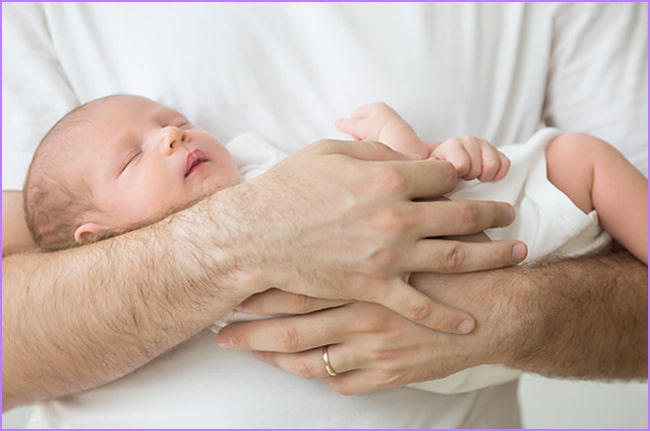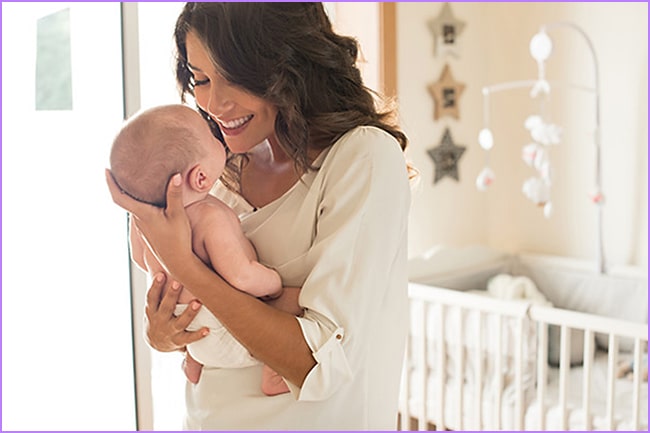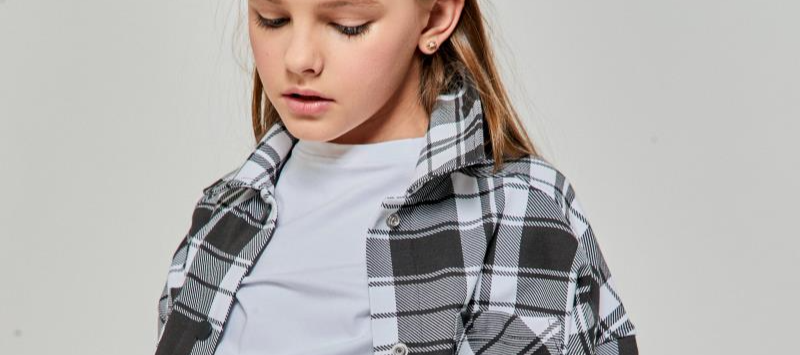Do you need to carry children in your arms? Myths and truth.
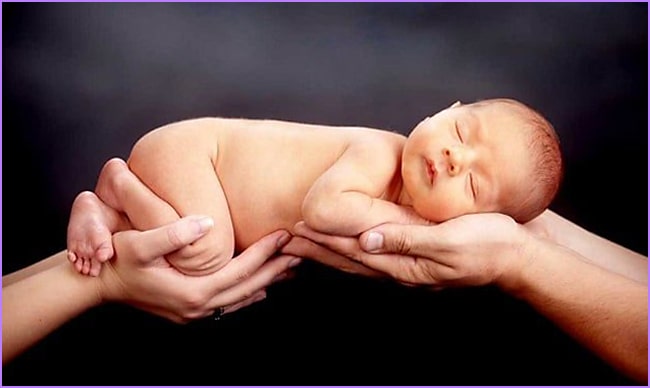
A child is born into a family. Young parents have many advisors. Those “wise with experience” warn:
- If you carry a child in your arms, he will refuse to sleep in his crib;
- If you give me a pacifier, you won’t wean me off before school age;
- If you feed on demand, there will be no time left for yourself and household chores;
- if you spoil yourself, you will tie yourself hand and foot;
Previously, it was believed that the less often you carry a child in your arms, the better. Is the baby asking to be held? This means that mother’s “connivance” has already managed to “spoil” the baby.
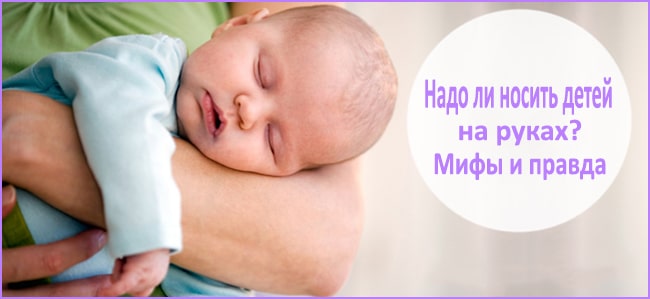
So, to wear or not to wear?
Let’s start with myths.
- The baby will develop the habit of being held.
- It will be difficult, almost impossible, to wean yourself off.
- The baby will constantly demand to be held in your arms.
- Mom won’t have time for other things.
- The baby’s spine will be bent.
- Mom is guaranteed to have back problems.
All these warnings cannot be called justified. Anyone who is at least a little familiar with the basics of psychology knows: it is impossible to spoil a foolish child.
All his desires are ordinary needs inherent in nature. You need to start not with education, but with love.
In disputes with experts on “how to properly raise a child,” you can use the information presented below.
Counterarguments refuting outdated stereotypes.
- The more often the mother approaches the baby, the safer he feels on a subconscious level. In adulthood, this feeling will develop into real, conscious trust in a loved one.
- The baby’s need for mother’s attention is as natural as the need for food. While being held, the baby provides psychological comfort through direct contact with the mother.
- They don’t get used to hands, just like food. When a person is full, he does not ask for food. Therefore, being in the mother’s arms, the child receives only that portion of attention, affection, positive emotions that saturates him emotionally. No more, no less. The child will not ask for too much.
- Time for household chores and everyday worries will not go away. You just need to organize your activities wisely, without trying to redo all the work in one day. Don’t try to prove to others “I am omnipotent, I can do everything.”
- Carrying it in your arms does not have a negative impact on the formation of a child’s spine. Proven by experts. But, constant stay in a crib or playpen has a detrimental effect on the development of children’s bodies. Muscle and bone corsets are formed faster and more correctly when the body is positioned vertically. Proven by experts.
- Mom’s back problems have nothing to do with the fact that she is carrying a child. The baby gains weight gradually, and the mother’s back muscles have time to adapt to the new load.
Advantages in the development of children carried by mothers in their arms.
- The neuropsychic development of children occurs faster. After all, tactile sensations are the most important stimulus for the development of the nervous system. Signals emanating from skin receptors enter various parts of the brain and contribute to their development.
- “Tame” children quickly establish visual and auditory contact with their mother, master the understanding of the language of strangers earlier, they quickly form their own vocabulary, and emotions manifest themselves more vividly and more diversely.
- The opportunity to observe the mother’s face up close contributes to the development of the emotional sphere, the ability to express one’s own feelings: joy, surprise, fear, delight.
- Children resort to sound and motor accompaniment of various feelings: in response to their mother’s smile, they themselves smile widely. They develop their own sound expression of a good mood: walking, “singing,” cooing, which is accompanied by energetic movements of the arms and legs.
- Children who are carried often tend to be calmer. Touch calms crying and calms. The level of the stress hormone cortisol in handbrake animals is quite low and this is a good signal.
- When touching the baby, the mother produces the hormone endorphin, which is called the hormone of happiness and positivity. Therefore, women instinctively hold their children close to them when they cry, and the little picky ones, in turn, quickly calm down.
- It has been noted that toddlers whom mothers caress, stroke, hug, feel better and suffer less from intestinal colic.
- When you touch the skin of a newborn, a special substance is produced that can activate the functioning of the imperfect and sensitive digestive tract.
- The warmth from the mother’s body acts as a healing heating pad and relieves pain.
- Cognition of the environment occurs more actively. It is more convenient to observe what is happening in the mother’s arms; surrounding objects are seen better, because from a lying position in the crib the child cannot see what is visible from the height of the mother’s arms.
- When a child is carried regularly, he is a participant in events, and not a passive observer of the environment. Such children grow up to be proactive, inquisitive, and active in learning.
- Constant communication with your mother contributes to the formation of a sense of mutual trust. Women whose children spent a lot of time in their arms understand their children like no one else, they know how to “read” the desires and needs of the little ones and satisfy them in a timely and correct manner.
Of course, even the most loving, caring mother must be guided by a sense of proportion. Moderation produces the best results.
Do not forget: the baby must be able to play independently for a certain time and do without the presence of an adult.
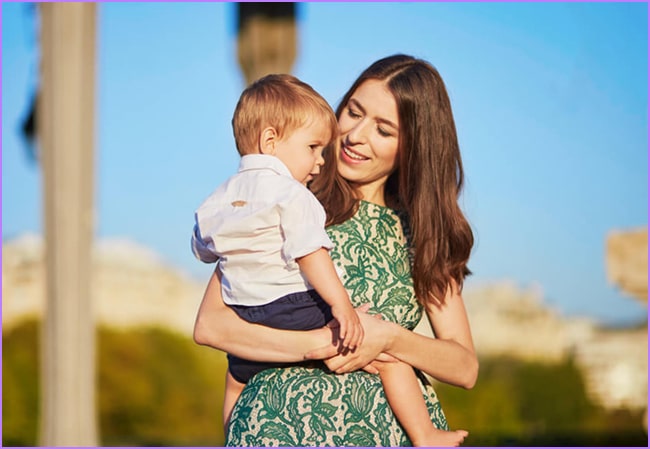
Until what age is it appropriate to pick up a baby on demand?
- Pediatricians say: from birth to 6-7 months. At this time, the child begins to crawl. This is the starting point for independent knowledge of the world. Don’t interfere!
- Reduce the “manual period”, give little researchers the opportunity to independently make their own discoveries. Of course, no one will name the exact date after which children should be limited in their arms. Everything happens very individually, because no one knows your child better than you.
- Consider everything: temperament, character traits, health, skill level, reaction to the absence of loved ones.
- The desire to know the unknown in older children overpowers the desire to be in their mother’s arms. From now on, you will no longer force your son or daughter to be passive observers of events. Cognition moves to the active stage, during which everything happens according to the principle “let me go, I want it myself.”
With age, the need to ask to be held in arms diminishes. The desire to constantly be in close contact with mom and dad ceases to be irresistible. But we feel the need for parental warmth and hugs all our lives.
Love is the basic need of the human essence. Its simplest and most accessible manifestation is to press a person close to you, hug him, and take a child in your arms and caress him.
We wish all families love and parental happiness!
